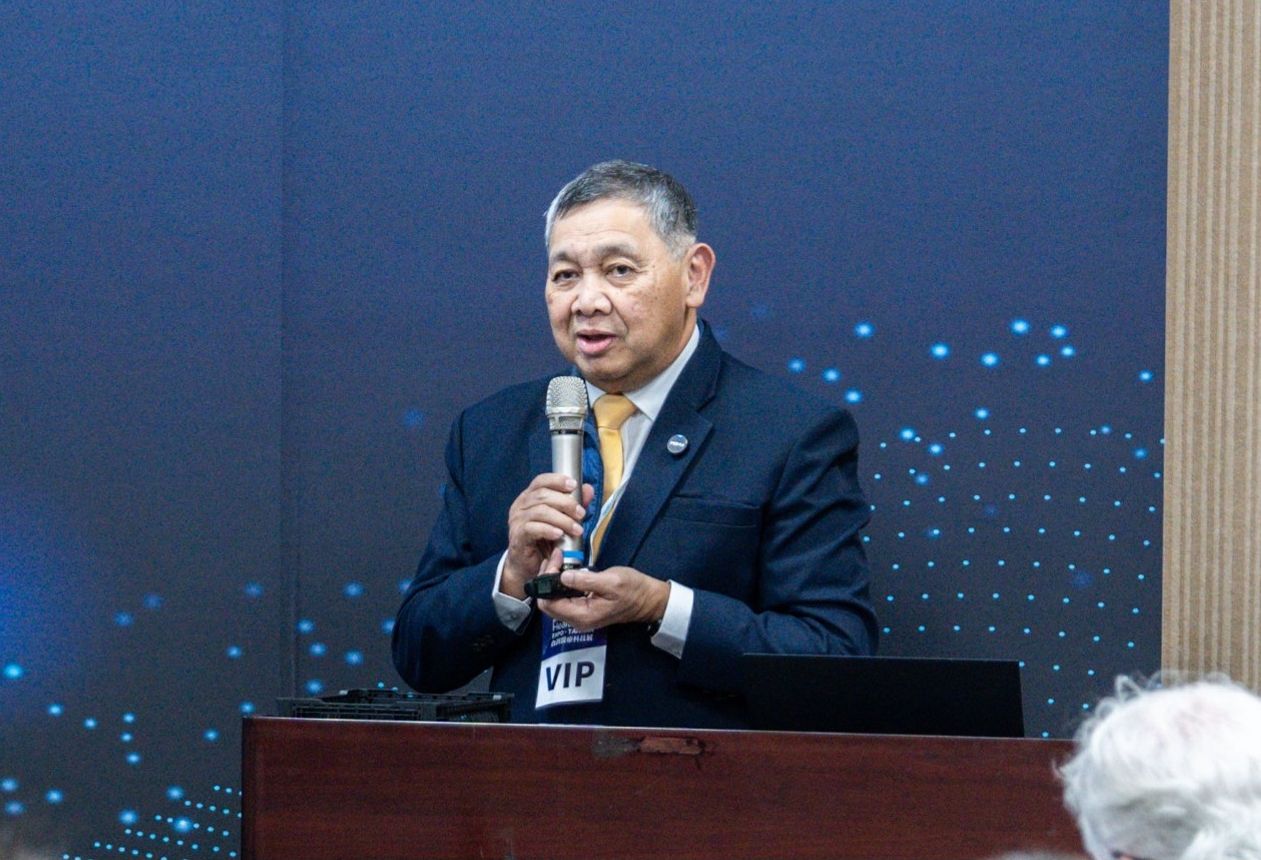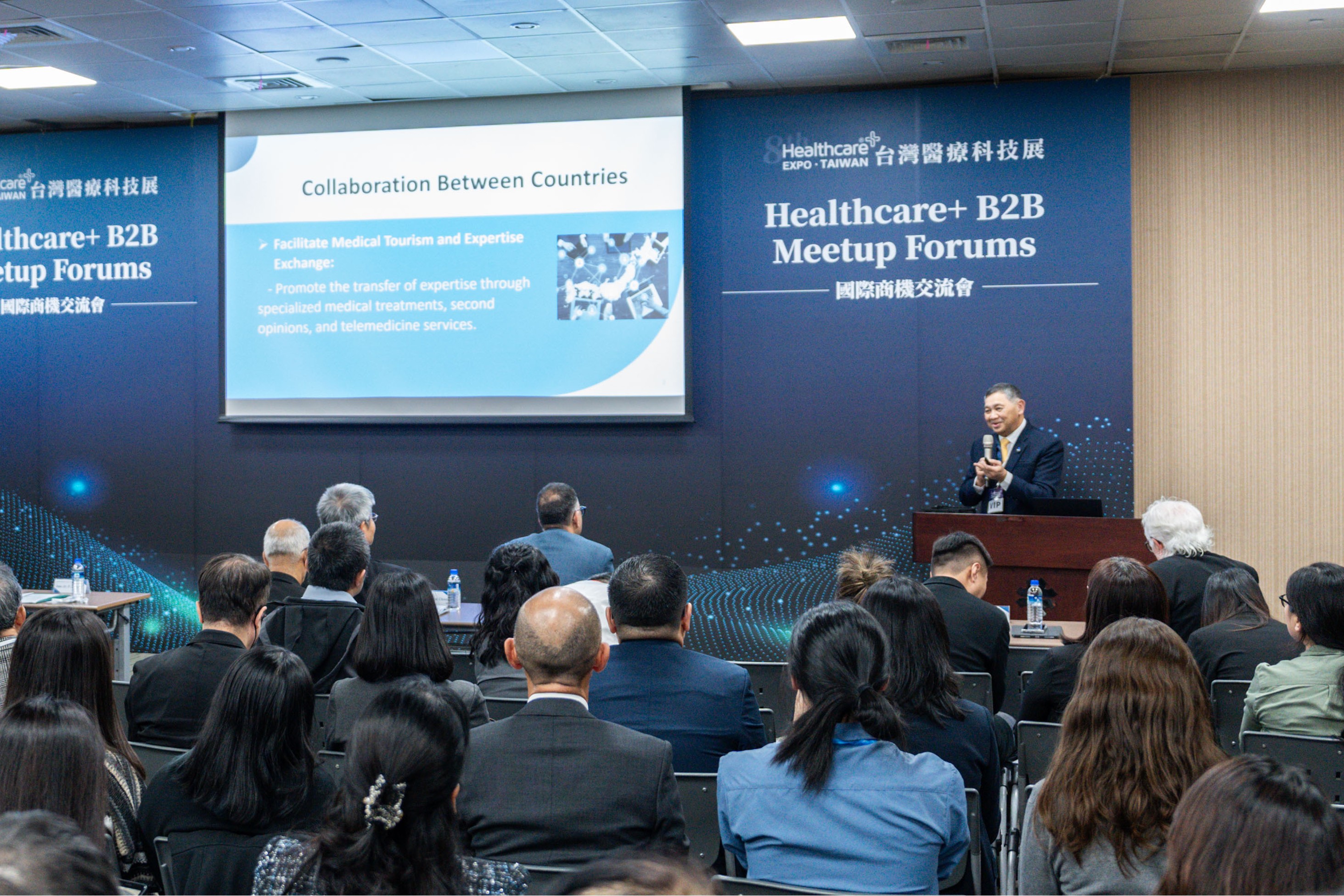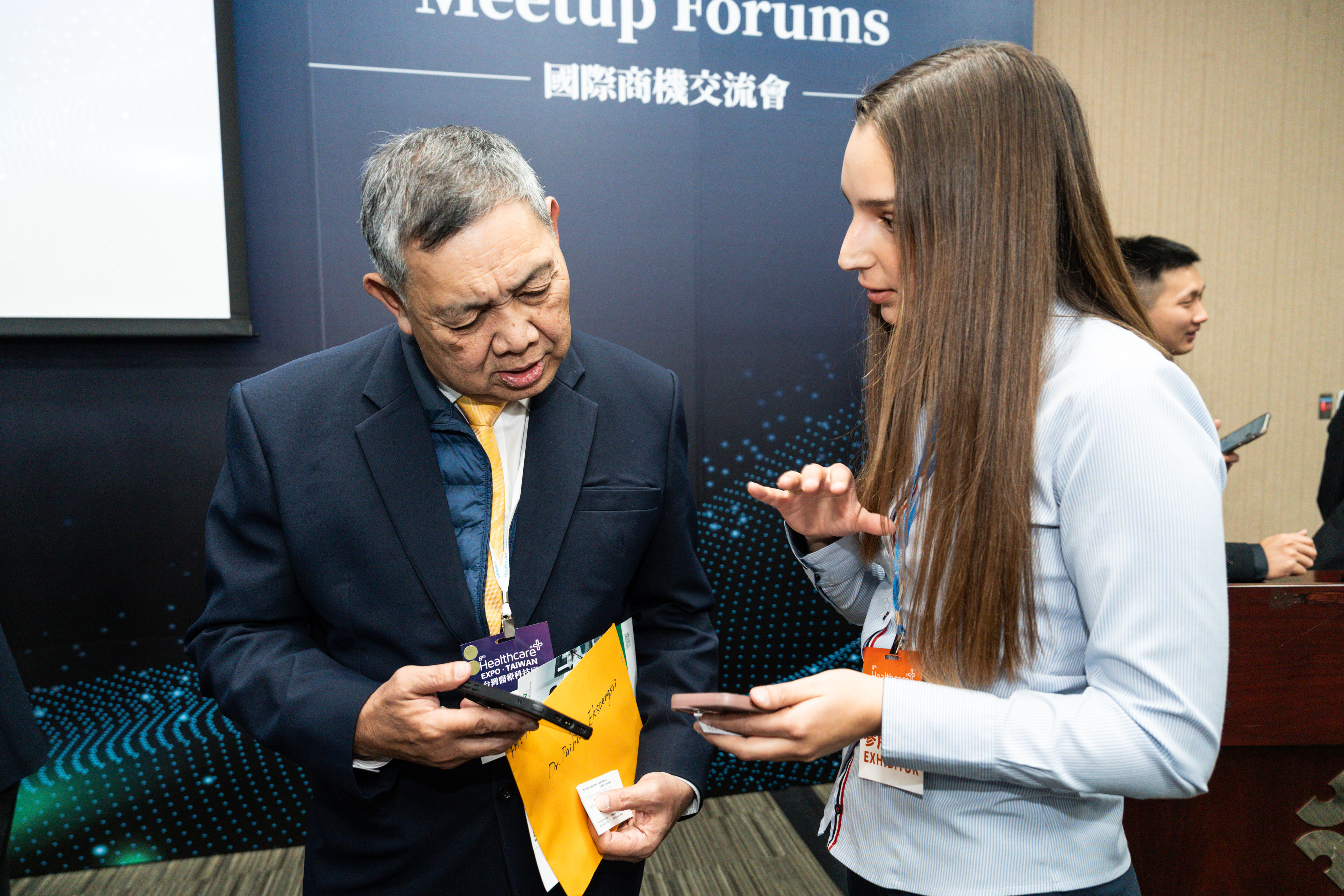
TPHA President Visits Healthcare+ Expo Taiwan, Proposes Regional Medical Alliance to Boost Thailand’s Private Healthcare
2025-07-13
📣Unlock New Healthcare Partnerships in Asia!
【2025 Healthcare+ Expo Registration Opens Now ▸ https://ibmi.pse.is/7mn2dd 】
Thailand’s private healthcare sector is experiencing robust growth, now boasting 425 private hospitals nationwide and a steady influx of new institutions. Yet, behind this rapid expansion of infrastructure lies a pressing challenge: limited resources for academic research and talent development threaten to constrain the advancement of Thailand’s private medical system.
Seeking solutions, Dr. Paiboon Eksaengsri, President of the Private Hospital Association Thailand (TPHA), visited Taiwan during the 2024 Healthcare+ Expo Taiwan to propose three key avenues for collaboration, aiming to spark a pan-Asia medical alliance and inject new vitality into Thailand’s private healthcare sector.


Dr. Paiboon Eksaengsri, President of the Private Hospital Association Thailand (TPHA), visited 2024 Healthcare+ Expo Taiwan to propose three key avenues for collaboration, aiming to spark a pan-Asia medical alliance and inject new vitality into Thailand’s private healthcare sector..
“Our private hospitals are unable to hire foreign professors, which restricts our access to new knowledge and technology,” Dr. Eksaengsri stated, highlighting the structural barriers facing Thailand’s private healthcare. He emphasized that these challenges make international partnerships especially crucial. Leveraging the platform of the Healthcare+ Expo, Taiwan Dr. Eksaengsri’s goal is not just to observe, but to create tangible opportunities for cooperation.
1. Medical Tourism: Cross-Border Care from Proton Therapy to Telemedicine
Thailand, Taiwan, Singapore, and Malaysia are all major hubs for medical tourism in the Asia-Pacific. Dr. Eksaengsri pointed to Taiwan’s competitive edge in advanced treatments, particularly proton therapy, as a prime area for partnership. “If we have the means, we should send patients to Taiwan for proton therapy,” he said, adding that the development of telemedicine could further eliminate geographic barriers, enabling preliminary consultations and professional exchanges.
2. Physician Training: Talent-Sharing to Bridge Healthcare Gaps
Given the difficulty private hospitals face in building comprehensive academic training systems, Dr. Eksaengsri stressed the importance of leveraging international resources. He proposed sending Thai doctors to countries with specialized strengths-including Taiwan, Poland, the Philippines, and Malaysia-to establish a regional talent-sharing mechanism. “I believe this is worth pursuing, as it will help raise healthcare standards across the region,” he remarked.
3. Medical Devices and Digital Technology: Sourcing from Taiwan, Adopting in Thailand
Dr. Eksaengsri was candid about Thailand’s weakness in local medical device manufacturing, noting the country’s reliance on imports. He expressed hope that Taiwan could supply high-quality products and provide training to improve their effective use. While Thailand excels in service quality, he acknowledged that support in medical technology remains essential.

Dr. Paiboon Eksaengsri explored strategic partnerships by engaging with top hospital executives and leading medtech and biotech companies from Taiwan at the Expo.
In terms of digital health, Thailand has already implemented 5G and hospital information systems (HIS), but most infrastructure comes from Western suppliers. Dr. Eksaengsri noted that Taiwanese systems offering Thai-language interfaces and tailored to local practices would have strong market potential, especially as many new hospitals are underconstruction-making this an ideal time for new system adoption.
Looking ahead, Dr. Eksaengsri identified “precision medicine” as the core trend shaping Asian healthcare, from cancer and cardiovascular disease to chronic illness management, all moving toward greater personalization and technological integration. He hopes that by forging closer ties with Taiwanese hospitals and companies, both sides can build an innovative medical platform for Asia. For Dr. Eksaengsri, this visit to Taiwan is not just an exploration of medical technology, but a strategic move to reshape the future of Thailand’s private healthcare sector.